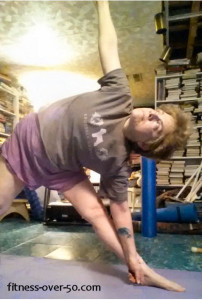You know that old saying, “You are what you eat?” Well, you can also say, “Your body mirrors your mind.” Your body really is a mirror of your mood and emotions.
Unexpected effects on your body
Your mood and emotions can affect your physical health in ways that you may not expect. You may experience pain, inflammation and even chronic illness as a result of continuing depression. Depression can deprive your body of its natural ability to fight off disease.
“Mental and physical health are linked. When the brain is out of balance, it can affect our body’s response to fight off illness,” says Dr. Munther Barakat, a psychologist at Aurora Psychiatric Hospital in Wauwatosa, Wis. When our mental health is compromised, it can lead to increased pain sensitivity, slower healing, weight gain or loss, increased inflammation, even a weakened immune system. When our immune system is compromised, it can lead to autoimmune diseases like arthritis or fibromyalgia. It can even cause abnormal cell growth which can lead to cancer. Your body is a mirror of the bad as well as the good.
Tips to fend off bad moods and depression
Dr. Barakat recommends developing habits to fend off bad moods and depression, like physical exercise! I’ve written before about how that “exercise high” is more than a myth. After an intense workout, I know that I feel more optimistic and happier. Even when I don’t feel like exercising, I do it anyway, and then afterward I’m glad I did. It could be the increased oxygen. It could be the tingly muscles. I just know that I feel better and more optimistic after I exercise.
Eating a healthy and balanced diet is another great habit to start or continue. Research has shown that a diet rich in Omega-3 fatty acids and complex carbohydrates has a positive effect on brain function and mood.
Relaxation techniques also calm your mind and body. Yoga and meditation are practices I follow. Hatha Yoga has the double (triple?) benefit of increasing your flexibility, exercising and stretching your muscles as well as calming your mind. You don’t have to be a yogi to benefit from a yoga practice. If you’re not able to do any particular pose, there are plenty of modifications and substitutes. If you take a class, mention to your instructor that you have certain limitations and more often than not, he or she will demonstrate terrific modifications.
Meditation eases stress
Acording to Psychology Today, mental health does benefit from meditation. A study in Psychiatry Research revealed that people who meditated for 30 minutes a day experience stress less intensely than those who didn’t meditate. The study also showed that the part of the brains involved with empathy and compassion of people who meditated grew. People who meditate care more – and that’s a key component of growing your resilience.
So if your body is a mirror for your mood and emotions, and if you’re in a great mood more, your body will be in better shape. Not only will you be more fit, and more able to do the things you want to do, but you’ll be more resilient and better able to tackle the challenges of life. That’s my definition of “fitness.”


